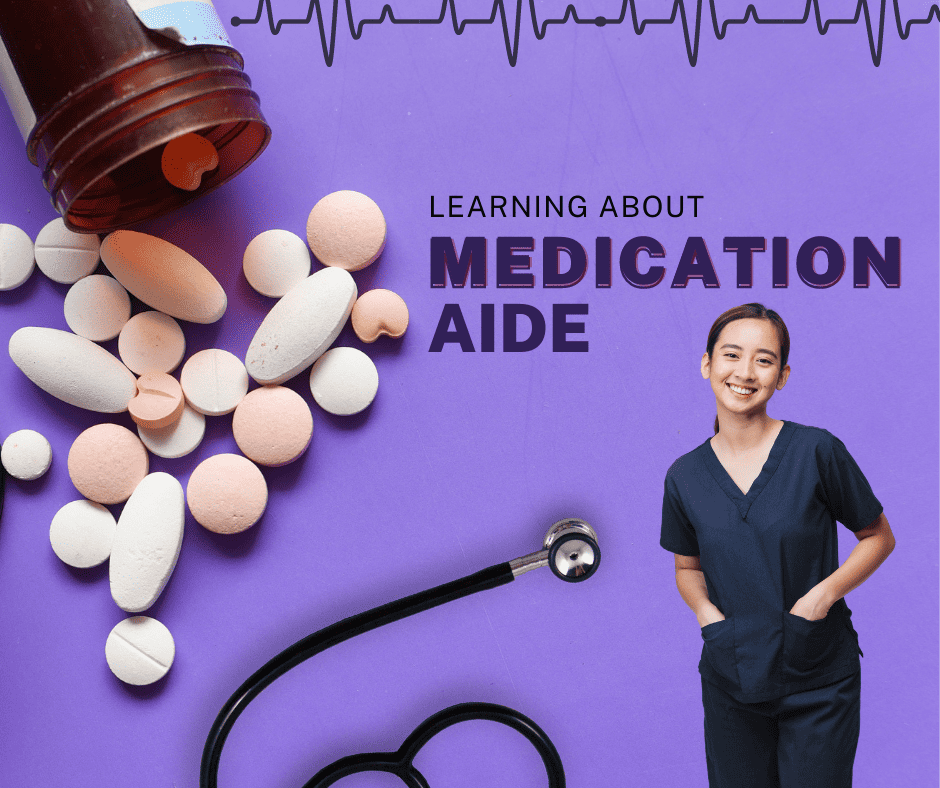What is a Medication Aide?

Medication Aides support licensed nurses by safely administering medications and monitoring patients, and this guide explains how you can enter the field with training programs lasting 3 to 10 weeks that cost as little as $500. With an average annual salary of $38,130 and a projected 4% growth rate, discover how meeting state-approved certification requirements can launch you into a rewarding healthcare career.
Key Points
- A Medication Aide is a professional who supports licensed nurses by safely administering medications and monitoring patients for any adverse reactions.
- To become a Medication Aide in your state, you often need CNA credentials, a high school diploma or GED, and successful completion of a state-approved training program.
- These classes typically last from 3 to 10 weeks, blending hands-on practice with classroom instruction.
- The cost of a Medication Aide program usually ranges between $500 and $1,200, giving you flexible options to match your budget.
- Medication Aides can earn around $38,130 a year, and this role is projected to grow by 4% from 2022 to 2032, offering steady opportunities for advancement.
Where Can a Medication Aide Work?
You can work as a Medication Aide in various work settings, including:
- Hospitals: In hospitals, Medication Aides assist nursing staff by administering medications and monitoring patient responses in a fast-paced, critical care environment.
- Long-term Care Facilities (Nursing Homes): In long-term care facilities, they work closely with residents to ensure proper medication management and provide compassionate, ongoing support.
- Assisted Living Facilities: In assisted living facilities, Medication Aides help residents maintain independence by managing medication schedules and monitoring for adverse reactions.
- Home Healthcare Agencies: In home healthcare settings, they deliver personalized medication management and care directly in patients' homes, ensuring continuity of treatment.
- Hospices: Within hospices, Medication Aides support palliative care teams by administering pain relief and symptom management medications to enhance patient comfort.
- Memory Care Units: In memory care units, they ensure that patients with cognitive impairments receive their medications on schedule while monitoring for any side effects or issues.
- Clinics: At clinics, Medication Aides support healthcare providers by preparing and administering medications as part of routine patient care and follow-up services.
- Educational Institutions: In educational settings, they may contribute to training programs and provide healthcare services or demonstrations that support student and community wellness.
Medication Aide Salary and Job Outlook
- Annual Salary: Around $38,130 (median)
- Hourly Rate: Approximately $18.33
- Growth Rate: Projected 4% growth from 2022 to 2032
Final Thoughts
Becoming a Medication Aide offers a rewarding path to serve patients, gain valuable clinical experience, and open the door to future healthcare advancements.
If you're a CNA, a Medication Aide is a path to level up your career. So, hop on the Medication Aide train, where you'll earn a satisfying income and embark on a journey filled with opportunities and growth.
You can also explore many upskill courses, such as phlebotomy or medical assisting. You have a buffet of possibilities to choose from and find the perfect fit for your skills and interests.
Start now and find the best school through Dreambound!

Fel is a student support representative who guides enrollees to the right program and answers their queries. She's committed to helping students and takes pride in her work. In her free time, she enjoys sightseeing and hanging out with loved ones.



